Postsecondary Education in Prison Programs and Accreditation — General Considerations for Peer Reviewers and Accreditors
In collaboration with the Higher Learning Commission (HLC), the Vera Institute of Justice created this guidebook for accreditors and their peer reviewers, providing insight into the unique context and goals of postsecondary education in correctional facilities.
Manufacturing a Future Post-Release: Two Paths to High-Skill Manufacturing Jobs
This webinar spotlights Manufacturing Extension Partnerships (MEP) Centers. These centers, which currently operate in all 50 states and Puerto Rico, connect individuals reentering their community with employment in manufacturing.
Manufacturing a Future Post-Release: Two Paths to High-Skill Manufacturing Jobs
This webinar spotlights Manufacturing Extension Partnerships (MEP) Centers. These centers, which currently operate in all 50 states and Puerto Rico, connect individuals reentering their community with employment in manufacturing.
Does Providing Inmates with Education Improve Postrelease Outcomes? A Meta-Analysis of Correctional Education Programs in the United States
A meta-analysis of 37 years of research (1980-2017) on correctional education and applied meta-analytic techniques.
Education for Incarcerated Juveniles: a Meta-Analysis
A meta-analysis of 18 eligible studies of educational interventions implemented within juvenile correctional facilities.
Correctional Education in the United States: How Effective Is It, and How Can We Move the Field Forward?
An article reviewing key findings from a review of correctional education programs for incarcerated adults and juveniles. The study included a meta-analysis of CE's effects on the post-release recidivism and employment rates of incarcerated adults, as well as a synthesis of evidence on CE programs for juveniles.
Serving Time or Wasting Time? Correctional Education Programs Improve Job Prospects, Reduce Recidivism, and Save Taxpayer Dollars
An infographic outlining key findings from a RAND report titled "Evaluating the Effectiveness of Correctional Education."
From Access to Use: Building an Equitable and Student-Centered Educational Technology Ecosystem for Correctional Education
A blog post advocating for equitable, student-centered technology ecosystem for correctional education. An ED resource (provided elsewhere in our library) is referenced at the end of the post.
Reentry Education Tool Kit
The Reentry Education Tool Kit was created by RTI International with support from the U.S. Department of Education, Office of Career, Technical, and Adult Education (OCTAE), to help education providers and their partners create a reentry education continuum in their communities.
Academic Achievement and the Implications for Prison Program Effectiveness and Reentry
The current study examines how academic achievement—measured as verbal and math performance—is associated with prison programming and reentry.
Correctional Education: Getting the Data We Need
This paper describes an effort to address the lack of policy-relevant data on correctional education: the Correctional Education Data Guidebook and Web site and the research projects that led to their development.
Understanding Educational Space Needs in Prisons
New Project Announcement
Project announcement about how Ithaka S+R and Ennead Lab are launching a two-year research and design project to both understand how space acts as a limiting factor on the quality and scalability of higher education in prison and propose solutions to mitigate these challenges.
Censorship in Prisons
Recording from the San Francisco Public Library's Banned Books Event Now Available
Recording from the San Francisco Public Library's Banned Books event.
A Meta-Analysis of Programs That Provide
Education to Incarcerated Adults
Meta-analysis examining the effectiveness of correctional education programming.
Higher Education Programs in Prison: What We Know Now and What We Should Focus On Going Forward
Drawing on past RAND research on correctional education and focusing on the Second Chance Pell Experimental Sites Initiative and the Pathways from Prison to Postsecondary Education initiative in North Carolina, this Perspective summarizes research on the effectiveness of educational programs in helping to reduce recidivism, key lessons learned in providing college programs to incarcerated adults, and remaining issues that need to be addressed, including how to ensure long-term funding of in-prison college programs and the need for an outcomes evaluation to learn from the Experimental Initiative.
Evaluation of North Carolina's Pathways from Prison to Postsecondary Education Program
RAND and RTI International researchers conducted an independent evaluation of the North Carolina Pathways Program, examining the implementation of the in-prison and community components of the program, the experiences of Pathways students and staff, factors that facilitated or hindered their participation in the program, and lessons learned.
What Corrections Officials Need to Know to Partner with Colleges to Implement College Programs in Prisons
This guide is intended to be a starting point for corrections officials who are considering partnering with a college to implement an in-prison college program within their prison facilities or who currently have such a program and would like additional information to help ensure the success of that program.
Evaluating the Effectiveness of Correctional Education: A Meta-Analysis of Programs That Provide Education to Incarcerated Adults
After conducting a comprehensive literature search, the authors undertook a meta-analysis to examine the association between correctional education and reductions in recidivism, improvements in employment after release from prison, and learning in math and in reading.
How Effective Is Correctional Education, and Where Do We Go from Here?
Final report to the U.S. Attorney General summarizing the findings from RAND's literature review and meta-analysis on the effectiveness of correctional education programs for incarcerated adults. It also includes a systematic review of correctional education programs for juveniles; the results of a national survey of state correctional education directors, including an up-to-date picture of what the field of correctional education looks today in the U.S. and explores the use of computer technology, preparations for the 2014 GED program, and the impact of the 2008 recession; and a set of recommendations on improvements needed to further the field of correctional education.
Disability, Accessibility, and Higher Education in Prisons
This article from Ithaka S+R outlines current research, and some initial interventions, on equitable practices that ensure incarcerated students with disabilities have access to postsecondary education.
Participate in Advancing Higher Education in Prison Research
Visit Ithaka S+R’s New Online Forum
Announcement of ITHAKA's new online forum.
Pell Restoration for People in Prison: Webinar Recording and Additional Resources
On September 29, 2023, Ithaka S+R hosted a webinar, “Pell 101: Information for Librarians and Those Serving People in Prison,” to share information about the restoration of Pell funding for students who are incarcerated. Panelists included prison education journalist and Open Campus reporter Charlotte West, Vera Institute of Justice Associate Initiative Director Ruth Delaney, and NASFAA Education Specialist Sheila Meiman. The webinar recording, along with additional resources, are shared here.
Pell Restoration for People in Prison: Webinar Recording and Additional Resources
On September 29, 2023, Ithaka S+R hosted a webinar, “Pell 101: Information for Librarians and Those Serving People in Prison,” to share information about the restoration of Pell funding for students who are incarcerated. Panelists included prison education journalist and Open Campus reporter Charlotte West, Vera Institute of Justice Associate Initiative Director Ruth Delaney, and NASFAA Education Specialist Sheila Meiman. The webinar recording, along with additional resources, are shared here.
Accessibility and Disability Services in Postsecondary Education in Prison Programming: An Interview with Jenifer Montag
In this interview from Ithaka S+R, Dr. Jenifer K. Montag, director of disability services at Marion Technical College, discusses her work as a researcher-practitioner, the challenges of providing disability services to postsecondary students in prison, and what needs to change for equitable access to education inside.
Education, Information, and Security: Key Findings and Context from New Report on Prison Media Review Policies
This report from Ithaka S+R summarizes the results of a scan of media review directives from all 50 states and the District of Columbia for their respective state departments of corrections.
Reflections on the 2022 Correctional Education Association (CEA) Conference
Blog post detailing how DOC education leadership and staff were planning to respond to the restoration of Pell grants for incarcerated college students.
Comments on the Department of Education’s Proposed Regulations for Pell Grant Restoration for Incarcerated People
Ithaka S+R’s letter to the Department of Education outlines their concerns and provides recommendations that would help ensure that people who are incarcerated in the United States are provided the opportunity to participate in and benefit from a quality education.
Building a Trauma-Responsive Educational Practice: Lessons from a Corrections Classroom
This timely manual presents a new perspective on teaching and learning focused on countering the impacts of trauma on adults’ ability to learn. Within its detailed and useful approaches, Daniels provides a road map for building a trauma-responsive teaching practice grounded in the principles of Trauma-Informed Care, and emphasizing the need for educators to develop a rigorous practice of self-care.
Preparing Mentally for Release
This video from the Education Justice Project features interviews with Education Justice Project alumni having very frank conversations on topics such as mental health, social expectations, fear and surprise, mindfulness, family relationships, and more.
MEND: A Publication of Project Mend, Syracuse University
Mend, a publication from Project Mend of Syracuse University, celebrates the lives and creative work of incarcerated and formerly incarcerated people as well as individuals who have been impacted by the criminal justice system. This annual publication showcases writing of all types, including fiction, poetry, and nonfiction. While prospective authors may submit pieces that describe their experiences with incarceration, the publication welcomes contributions on any topic.
Who Would Believe a Prisoner? Indiana Women's Carceral Institutions, 1848-1920
In this single-volume book, a group of incarcerated women at the Indiana Women’s Prison have assembled a chronicle of what was originally known as the Indiana Reformatory Institute for Women and Girls, founded in 1873 as the first separate prison for women in the United States.
Who Would Believe a Prisoner? Indiana Women's Carceral Institutions, 1848-1920
In this single-volume book, a group of incarcerated women at the Indiana Women’s Prison have assembled a chronicle of what was originally known as the Indiana Reformatory Institute for Women and Girls, founded in 1873 as the first separate prison for women in the United States.
Who Would Believe a Prisoner? Indiana Women's Carceral Institutions, 1848-1920
In this single-volume book, a group of incarcerated women at the Indiana Women’s Prison have assembled a chronicle of what was originally known as the Indiana Reformatory Institute for Women and Girls, founded in 1873 as the first separate prison for women in the United States.
Preparing for Prison Education Programs: Tips for Administering Financial Aid for Incarcerated Students
In this webinar hosted by the National Association of Student Financial Aid Administrators (NASFAA), experts on administering financial aid in prison settings discuss what financial aid administrators and prison education practitioners can do to ensure they are prepared to effectively support incarcerated learners with Pell Grant eligibility.
Learn tips to successfully administer Pell Grants for incarcerated students and gain an understanding of the existing regulations and guidance impacting prison education programs and the tools available to assist the financial aid and prison education communities when serving this student population.
Preparing for Prison Education Programs: Tips for Administering Financial Aid for Incarcerated Students
In this webinar hosted by the National Association of Student Financial Aid Administrators (NASFAA), experts on administering financial aid in prison settings discuss what financial aid administrators and prison education practitioners can do to ensure they are prepared to effectively support incarcerated learners with Pell Grant eligibility.
Learn tips to successfully administer Pell Grants for incarcerated students and gain an understanding of the existing regulations and guidance impacting prison education programs and the tools available to assist the financial aid and prison education communities when serving this student population.
Graduated Justice podcast
Graduated Justice is a monthly podcast that features conversations with individuals from the higher education in prison community, brought to you by Tennessee Higher Education Initiative. We strive to find opportunities for autonomy and success within these conversations.
Graduated Justice embraces diversity and inclusion and recognizes our responsibility to foster an open, welcoming environment where every person, regardless of background, identity, sexual orientation, religion, or nationality can be their authentic selves. We value the benefits that arise from diverse experiences and are committed to providing content that expose some to new knowledge while supporting others as they connect to their identities. We also strive to acknowledge the complexity of intersecting identities by respecting the uniqueness of each individual.
Technology in Higher Education in Prison Programs: A Report on Survey Findings
In 2022, Ithaka S+R launched a nationwide survey that would help determine the national landscape for accessibility to educational technology in prison education programs. The survey asked respondents about student access to technology in their higher education in prison program, collecting demographic information before focusing on four thematic areas: technological devices, learning management systems and software, network connection and internet access, and future technology plans. The findings from this survey are presented in this report.
Technology in Higher Education in Prison Programs: A Report on Survey Findings
In 2022, Ithaka S+R launched a nationwide survey that would help determine the national landscape for accessibility to educational technology in prison education programs. The survey asked respondents about student access to technology in their higher education in prison program, collecting demographic information before focusing on four thematic areas: technological devices, learning management systems and software, network connection and internet access, and future technology plans. The findings from this survey are presented in this report.
Technology in Higher Education in Prison Programs: A Report on Survey Findings
In 2022, Ithaka S+R launched a nationwide survey that would help determine the national landscape for accessibility to educational technology in prison education programs. The survey asked respondents about student access to technology in their higher education in prison program, collecting demographic information before focusing on four thematic areas: technological devices, learning management systems and software, network connection and internet access, and future technology plans. The findings from this survey are presented in this report.
Reentry and Education: The Consequences of Indifference
Blog post about how indifference can show up in small technical moments in a formerly incarcerated students' education journey and how those moments can contribute to continued systemic trauma.
Reentry and Education: The Consequences of Indifference
Blog post about how indifference can show up in small technical moments in a formerly incarcerated students' education journey and how those moments can contribute to continued systemic trauma.
Reentry and Education: The Consequences of Indifference
Blog post about how indifference can show up in small technical moments in a formerly incarcerated students' education journey and how those moments can contribute to continued systemic trauma.
Rise Up Conference
The Rise Up Conference seeks to liberate higher education during and after prison. It highlights the role of incarcerated and formerly incarcerated people in birthing this movement, the ways in which these spaces have been occupied by others, the assets we offer to these spaces, and the ways in which allies can help foster liberation. The conference also provides perspectives on higher education during and after prison that are unique to those with lived expertise.
Rise Up Conference
The Rise Up Conference seeks to liberate higher education during and after prison. It highlights the role of incarcerated and formerly incarcerated people in birthing this movement, the ways in which these spaces have been occupied by others, the assets we offer to these spaces, and the ways in which allies can help foster liberation. The conference also provides perspectives on higher education during and after prison that are unique to those with lived expertise.
Rise Up Conference
The Rise Up Conference seeks to liberate higher education during and after prison. It highlights the role of incarcerated and formerly incarcerated people in birthing this movement, the ways in which these spaces have been occupied by others, the assets we offer to these spaces, and the ways in which allies can help foster liberation. The conference also provides perspectives on higher education during and after prison that are unique to those with lived expertise.
Rise Up Conference
The Rise Up Conference seeks to liberate higher education during and after prison. It highlights the role of incarcerated and formerly incarcerated people in birthing this movement, the ways in which these spaces have been occupied by others, the assets we offer to these spaces, and the ways in which allies can help foster liberation. The conference also provides perspectives on higher education during and after prison that are unique to those with lived expertise.
What's the Deal with Pell in Prison?
An FAQ on Pell Grants put together with common questions crowdsourced from people inside.
College Inside Newsletter and Archives
A biweekly newsletter about the future of postsecondary education in prisons. Written by Open Campus staff reporter Charlotte West. Webpage includes links to previous print issues.
Reentry and Education Part 1: Recommendations
Recommendations for colleges wanting to help returning students.
Reentry and Education Part 2: Building an External Network
Recommendations for building a network of stakeholders, organizations, community members, etc., in HEP work.



